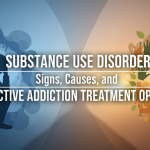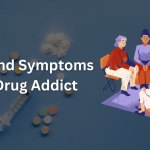If you struggle with drug or alcohol abuse, you are not alone. According to the Substance Abuse and Mental Health Services Administration (SAMHSA), 48.5 million people had a substance use disorder in 2023.[1]
The best way to overcome addiction is by attending a recovery center. Addiction rehab programs will help you begin your recovery journey by offering services like medical detox, evidence-based therapies, relapse prevention planning, and more. Inpatient programs are highly effective, providing 24/7 care and supervision.
If you choose to attend an inpatient rehab program, you’ll have to move into the facility for 30 to 90 days. This means you’ll have to pack everything you need before traveling to the facility. Sometimes, it can be difficult to determine what items to bring and which ones to leave behind.
When attending a featured addiction treatment center in Central Florida, you want to bring items like toiletries and beauty products, at least a week’s worth of comfortable outfits, your important documents, and items that help you feel comfortable or entertain you.
In this article, you will learn:
- What items should you bring to rehab?
- What items are prohibited in rehab programs?
- Which items should you call and ask about before bringing them to rehab?
What to Pack for Rehab in Florida: A Packing Checklist for Addiction Treatment
Going to rehab in Florida can be exciting and stressful at the same time. While you are making a huge and positive change in your life, there is a lot of preparation to be done. For example, you’ll have to make sure you pack everything you need to be comfortable and content during your stay. Thankfully, there is a list of things you should bring to rehab that will help you prepare, including:Clothing
You want to make sure you have at least seven outfits for your rehab stay. While there will be a way to do your laundry, you might not be able to wash clothes more than once a week. Additionally, you need weather-appropriate and comfortable clothing. You should bring the following clothing items:- Comfortable and loose-fitting clothing that is appropriate for therapy and daily activities, like sweatpants, leggings, and T-shirts
- 7 to 10 changes of clothes, including pajamas
- Socks and underwear
- Comfortable shoes like tennis shoes or slip-ons like Crocs
- Shower shoes or flip flops
- A jacket or hoodie in case the inside of the facility is cold
- A bathing suit, as rehabs in Florida often have pools or outings at the beach
Personal Hygiene and Beauty Products
Because you’ll be living at the facility, you need to bring your personal hygiene and beauty products. Treatment centers allow you to bring alcohol-free items. In other words, you shouldn’t bring mouthwash that contains alcohol. The hygiene and beauty products you should bring to rehab in Florida include:- A toothbrush, toothpaste, and floss
- Alcohol-free mouthwash
- Alcohol-free shampoo, conditioner, and body wash
- Non-aerosol deodorant
- A hairbrush or comb
- Feminine hygiene products
- Any specific hair care or skincare products you use
- Small makeup items, if necessary
Important Documents
You should also bring any important documents you have with you. For example, you might need:- A valid form of identification (driver’s license or passport)
- Insurance cards
- Pre-authorization or referral forms
- A list of current prescription medications and dosages
- A small amount of cash and credit or debit cards
Comfort Items and Activities
During your stay, you want to feel as comfortable as possible. If you have meaningful items like pictures of your family, you should bring them with you. Other comfort items to bring to rehab include:- Reading materials for downtime
- Journal or diary
- Pens, paper, and drawing or coloring materials
- Photos of loved ones
- A contact list of family and friends if you aren’t allowed to have your phone
- Comfort items like a favorite pillow, blanket, or stuffed animal
- Envelopes and stamps for writing letters
- Video games and DVDs
- Games and playing cards
- An alarm clock
What Shouldn’t You Bring to Rehab?
While rehab usually allows most items, there are some things you aren’t allowed to bring. For example, you should avoid bringing these items to rehab:- Weapons like guns, knives, scissors, sharp objects, and more
- Reading materials that focus on substance abuse
- Aerosols or liquids containing alcohol (mouthwash, perfumes, etc.)
- Cleaning supplies like bleach, ammonia, etc.
- Outside food, as it could contain substances that the rehab isn’t aware of
- Electronic cigarettes, unless the rehab permits it
100% Confidential Support is Available 24/7
No matter what you’re going through, you’re not alone. Our dedicated team is here to provide a safe, judgment-free space where you can talk openly and honestly. Whether you need emotional support, resources, or just someone to listen.
We’re here for you—completely confidential and always respectful of your privacy. Call us today!
Some Rehabs Allow These Items, While Others Don’t
Some facilities have different rules about what items to bring to rehab. For example, some treatment centers allow internet access, while others prohibit it. Before bringing these items with you, call your rehab center to check if they are allowed:- Narcotic prescription drugs and over-the-counter medications
- Phones, laptops, and other electronics
- Disposable razors and nail clippers
- Vitamins
- Gum and other food
- Cameras
- MP3 players or music players
- Cigarettes or vapes
- Items to make your room feel like home, such as pillows or bedding from your house
Contact Solutions Healthcare
Battling with Drug and Alcohol Addition? Remember, you are not alone and we are here to help you!
Get Connected to a Top-Rated Addiction Treatment Center in Florida
If you are considering attending rehab, it’s time to accept the help you need. At Solutions Healthcare, our admissions counselors can give you a list of items to bring to our rehab. Contact us today for more information on what to bring to rehab and how to enter our program.
References
- The Substance Abuse and Mental Health Services Administration (SAMHSA): Highlights for the 2023 National Survey on Drug Use and Health






















